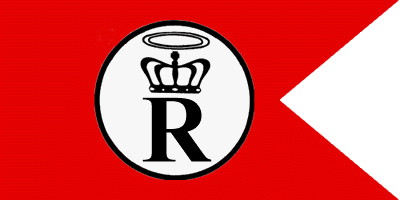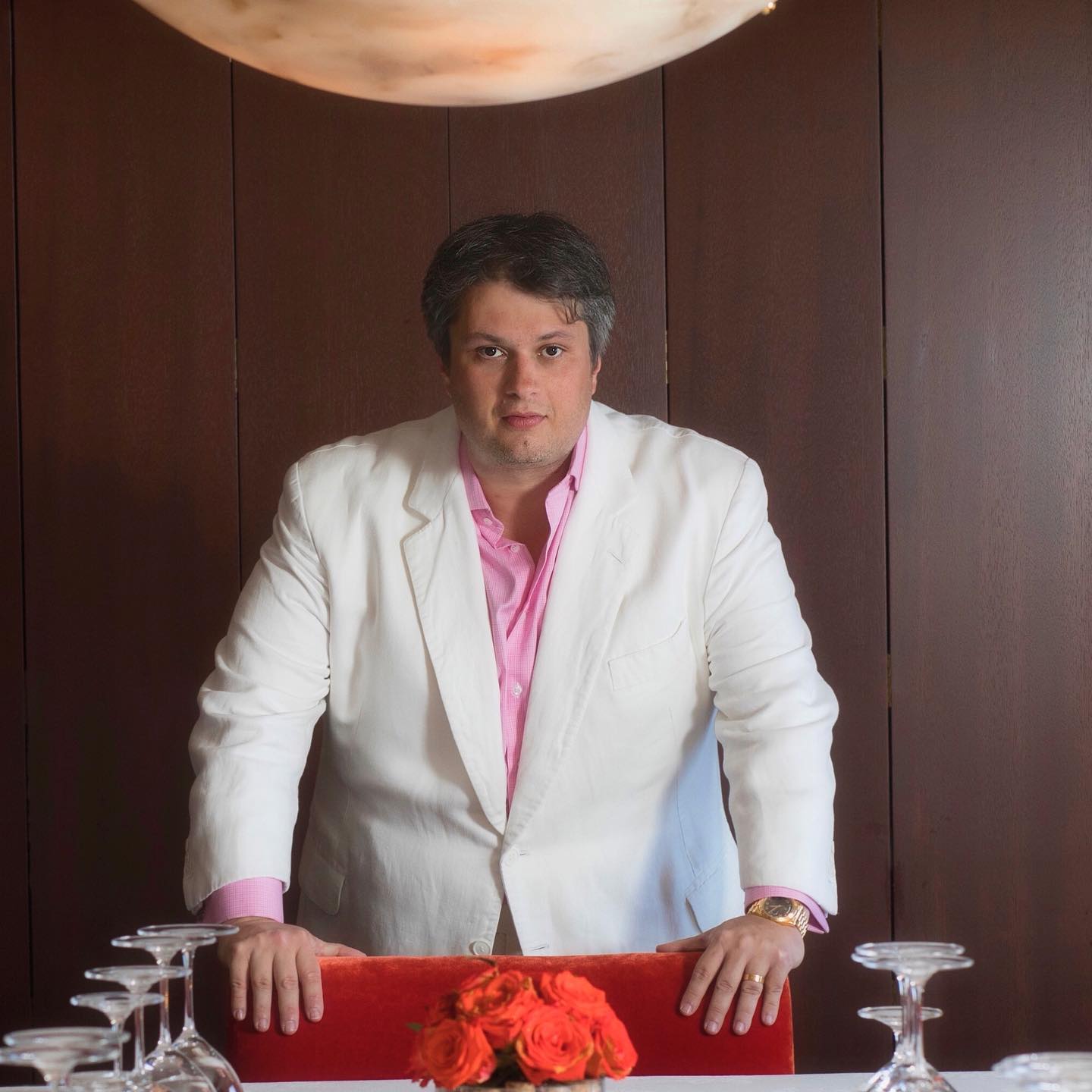Holy Empire of Reunion
| Holy Empire of Reunion | ||||
| ||||
| Motto Fiat Justitia Pereat Mundus | ||||
| Reunion Island, Indian Ocean | ||||
| Capital city | Saint-Denis, Royal District | |||
|---|---|---|---|---|
| Official language(s) | Portuguese | |||
| Short name | Reunion | |||
| Demonym | Réunian | |||
| Government | Absolute monarchy | |||
| - Holy Emperor | Claudio I | |||
| - Prime Minister | Vacant | |||
| - Lord Protector | Alexandre Carvalho | |||
| Established | 28 August 1997 | |||
| Population | 744 2011 estimate | |||
| Currency | Réunian Cifra | |||
Official website | ||||
The Holy Empire of Reunion is a micronation based upon an established national culture, symbols and institutions, as well as a perception of a collective past and future - a common destiny. Réunians understand that a micronation may involve several dimensions: political exercise, societal conviviality, actual personal relations, live cultural experiments and so on.
Réunion is the second-oldest lusophone (Portuguese-speaking) micronation and is considered a "school for micronationalists."
History
Réunion was founded in 28 August 1997 by a group of Brazilian law students studying at the Pontifical Catholic University of Rio de Janeiro. The nation's founding fathers are Emperor Claudio, Eduardo Iatauro, Bernardo Bauer and Fernando Genesine, of whom only the Emperor remains as a citizen. They claimed as their sovereign territory the French marine department of Réunion Island, located approximately 950 km (590 mi) east of the island of Madagascar.
From 1997 to the year 1999, Réunion was a fully-functioning bilingual micronation, where all the government decisions, laws and messages exchanged by citizens had to be written in both English and Portuguese. However, in the middle of 1999, the amount of lusophone citizens, which was only a bit higher than that of anglophones started to rise, causing problems of representation in the legislative houses. Hence, in October 1999, the Imperial Government sent a bill to the Imperial Council, which was approved, establishing Portuguese as the only official language. Citizens like Skinner Layne, Christopher Thieme, Jeremy Johnson, Chris Loutradis, Daniel Jackson, William Myers, Rick Harwood and Justin Harwood were some of the most important anglophone Réunians.
Réunion started funding through e-commerce like selling shirts and hats to fund for advertising. The population has grown hugely since this policy started, and the nation currently is in its golden age.
Activities
As of 2022, the nation has 744 subjects, of which only one has acquired citizenship in 1997. The Réunian government declared that 139 of its citizens are fully active and registered to vote according to the recent census.
Réunians practice micronationalism mainly through mailing lists and through online messaging programs. It is not their habit to use forums to host their activities. Réunion has a central mailing list, called The C.H.A.N.D.O.N. (Portuguese initials for "Public and Weekly Updated Database of the National Organization Department"), plus many secondary mailing lists, one per geographic division, plus mailing lists for each government department.
Government
The government of Reunion is divided into four branches and is ruled by an Emperor.
Moderative branch
While the other Branches make use of the "checks and balance" philosophy, and are equal in importance to each other, the MODERATIVE BRANCH is hierarchically above them all. It is represented by the Emperor and by the Lord Protector of the Empire, who is His Chief of Staff. Other members of the Moderative Branch, all in the Cabinet of the Lord Protector are the Imperial Chancellor, the Imperial Herald, the Spokesman of the Imperial Press Consultantship and the President of the Imperial Geographic Society.
One of the most common main instruments of the Moderative Branch is the EDICTO PROMULGATÓRIO, act by which the Emperor presents His decisions about the projects submitted to him by the Imperial Council to the people of the Empire. The Edict can either agree with each and every decision of the council or contain one or more OUTORGAS, which were already explained here.
The CUMPRA-SE is an irrevocable act of approval (sanction) of a project by the Emperor. It can be expressed by a EDICTO PROMULGATÓRIO or GLORIOUS ORDINANCE or just a "CUMPRA-SE TÁCITO", which happens when the Emperor remains silent for 11 DAYS about something submitted to His approval: if that happens, the project is automatically approved.
The most important characteristic of the Moderative Branch is its 'ius imperii' over the other branches, the power it has to interfere in (almost) all the decisions of either the Judicial, the Executive or the Legislative Branch, by Imperial Decree or by Glorious Ordinance, both types of MODERATIVE INTERVENTION. The only body whose decisions the Emperor cannot overrule is the People's Assembly of Qualicates, which can, however, be dissolved by Glorious Ordinance.
Executive branch
Represented by His Imperial Excellency, the Premier and his freely appointed cabinet of ministers which includes 11 ministers. (Although appointments of Ministers of Immigration and Interior need approval from the Assembly) The Premier is elected by the People's Assembly of Qualicates (APQ) and his name is ratified by the Emperor. He appoints his ministers by Ordinary Measure. The Premier rules by Ordinary Measure, Executive Decree OR Consults to the Distinguished Imperial Council or to the People's Assembly, depending on the case, accordingly to the Sagrada.
Legislative branch
Represented by the High Chamber, the Distinguished Imperial Council (16 members appointed by Glorious Ordinance of the Monarch for a life-long term) and the Low Chamber, the People's Assembly of Qualicates (12 members) elected by the people, directly, every six months. They MUST be members of one of the existent parties. The Council is presided by its President and Prime Counselor, and the Assembly by the Director-President, who is also the Vice-premier of the Empire. All the counselors have the right to propose bills - any bills, provided they are constitutional - to their peers, by submitting them to the Presidency before the house in a Plenary Session.
All the decisions of the Imperial Council are subject to the Emperor's Approval.
Judicial branch
Represented by the Imperial Chief Judge, the Prosecutor-General (Represents the State in all trials), the Imperial Advocate (defends the State in lawsuits against It and the regular Judges, and with its headquarters at the Fritz Strauss Palace, at Saint Andre, Straussia. The Judges will use of the "common law" to decide over matters not related to the constitution.
The Chief Judge is appointed by Imperial Decree, and he freely appoints the regular Judges. All the lawyers must go through an exam given by the Prosecutor General in order to achieve the license to represent. The Lord-Protector, although a part of the Moderative Branch, can serve as a Judge on matters concerning disputes between nobles who carry titles given by His Holy, Imperial Majesty.
International relations
The country is an active member of many Leagues of Micronations, such as the League of Secessionist States, the League of Micronations, Comity of Peoples, United Virtual Nations Organization, Micras.org, Grand Unified Micronational, Micronational Monarchies Organization and others. It is known for seeking interaction with micronations from all linguistic sectors, from the Lusophone to the Polish.
Through its history, it has annexed and given birth to many micronations, such as Ludonia, Porto Claro, Açores and many others. Pasargada is the most famous daughter nation of Réunion.
On 16 March 2023, Emperor Claudio I of Reunion participated in a State Visit with Westarctica in Rio de Janeiro.
Press
Reunion has been featured by the international press and mentioned in many books about the subject of micronationalism. There are articles, many of which available on the internet from newspapers and magazines such as The New York Times, La Repubblica, and La Liberation portraying micronationalism and mentioning the Empire.

